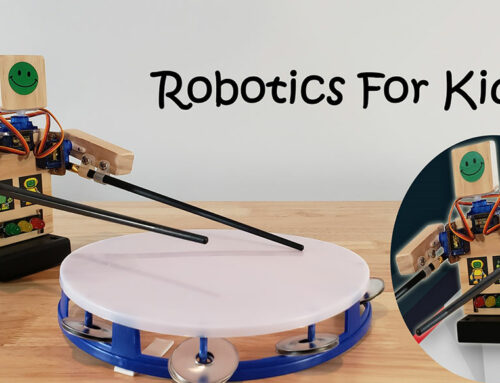By Peggy Ployhar
With high school graduation looming on the horizon for your special needs child, how can you be sure that you have done enough? The futures planning process, as it is often called, presents both unique challenges and many wonderful opportunities to explore.
Read ahead:
Transition Planning for High Schoolers with Special Needs
Once special needs students in the public school start their freshman year, a transition plan is usually built into their IEP, which will take into account possible avenues of employment or community involvement students may pursue upon graduation. The life skills, occupational skills and educational goals listed in this plan will aid in their transition into adult life.
10 Post-Graduation Options for Students with Special Needs
Since children with special needs do not often plan to attend a four-year college, their transitional planning may be more in line with what they or their parents foresee as their next step beyond high school. Some alternatives to consider when thinking about your student’s post-high school plans are for him or her to:
- Start a business or market a current hobby
- Enter a missionary training program
- Pursue a trade certification
- Get an apprenticeship with an artisan
- Enroll for a two-year degree at a community college with a special needs department
- Join the military
- Get a job with the intention of learning and growing in the industry
- Take online or community adult education classes in areas of interest to learn marketable skills
- Volunteer at a church, community center, animal shelter, nursing home or school
- Finally, some four-year universities can provide the support needed for students with special needs to be successful in earning bachelor’s degrees in general education.
Graduation Plan for Students with Special Needs
After considering the transition plan for your student, write out a graduation plan that documents the specific courses or milestones your student should reach upon completing high school. This document can be as simple as a list or as complex as a series of IEP measurable goals, but in the end, all of your student’s work should be documented in a high school transcript where courses are listed along with credits and grades.
For example, say your student had the transition goal of going to culinary school upon graduation. If you were to teach your child specific cooking techniques each year of the high school career, then you could document credits for a specific course, like different bread baking techniques.
High School Homeschool Diploma
Once the requirements are all met, you’re ready to celebrate graduation. There are several steps to consider when graduating a homeschool student, but you’re almost there! The final step in completing your students’ homeschooling career is presenting them with a high school diploma.
Homeschools within Texas are considered a type of private school and therefore are not required to subject their students to the state standardized mandates for high school graduation. Instead, your homeschool has the right to set its own high school graduation requirements, and they can vary based on the most optimal graduation and transition plan for each of your students. You, the parents, will issue your student’s diploma. As a member of THSC, you have the ability to use our diploma template to make a professional diploma for your student upon graduation.
Best Curriculum for Preparing the Student with Special Needs for College
Many times, a student with learning differences wants to pursue a college-prep track. At the same time, however, parents acquiring homeschool materials struggle to find adaptable, rigorous curriculum.
Below is a list of curriculum providers who have bridged this gap with the addition of video content or through hands-on studying. All of the full curriculum options below are flexible enough to be used as an entire program or in conjunction with other programs that may better fit student needs.
In the end, helping special needs high school students reach their highest potential will not only prepare them for college, but also will teach them how to approach difficult content in a creative manner.
Full Curriculum Options
Easy Peasy High School
Discovery K12 High School
Unique
Wieser Education Products for Struggling Learners
Time 4 Learning High School
History
Answers in Genesis History
KONOS High School History
History of the World Curriculum
Critical Thinking Company History Products
Science
101 High School Science Series
Super Charged Science
Discovery Education Science Techbook
Math
Discovery Geometry
Life Of Fred
Math-U-See
Khan Academy
English/Composition
Write Shop I & II
Fortuigence
Critical Thinking Company Language Arts Products
Literature
For literature, the best modification for special needs students is to add in books that relate to the history the student is studying as well as topics that spark student interests. If your student struggles with reading, look at audiobook options, abridged or graphic novel versions of classical literature, or e-readers that have several benefits for students with special needs.
Evaluating the Work of Your Special Needs Homeschool Student
While grading math is pretty straightforward, subjects with less empirical data, like writing, often leave parents floundering when it comes to grading. A grading rubric, which lists the criteria being evaluated, can help with analyzing these more difficult subjects. It will not only help you as a homeschool parent with grading your children’s work, but will teach your children where the bar has been set for them to achieve success in each subject. Below are some helpful links that will give you examples, the basics on how to create your own rubrics, and even customized rubric generators.
- teAchnology: Offers a large collection of pre-made rubrics, especially for grade school subjects and activities
- Teacher Planet: Rubrics 4 Teachers: Lots of pre-made project rubrics, plus a very simple rubric building tool for making simple custom rubrics
- Project Based Learning: Checklist developer: A checklist approach to a grading rubric
- edtechteacher: Great rubrics for high school-level work including blog, video, coding, and media projects, as well as many links to other rubric development material
Giving grades and setting standards for success in your homeschooling may be a part of being diligent homeschooler. Your children will never suffer if you take the time to prepare them for success.
Grading and recording those grades is even more important if you believe that, at any time, your children may be re-enrolled in a public or private school. These schools have been increasingly resistant to accept homeschool students at the level their parents say they are studying or achieving. Instead, these school officials want parents to present records that prove a child’s academic success and course work. Each school district has its own intake procedures, but keeping grades and report cards for a student will almost always improve your position to advocate for your student in these instances.
Disability Testing Results on an IEP
First of all, if your child is to have an IEP that will last beyond high school, demonstrating needs for accommodations and modifications on employment tests, state certification tests, or in any post-secondary educational setting, make sure the testing and the test administrator’s notes validating those needs have taken place after your child’s 13th birthday. Testing before the age of 13 is suitable in solidifying IEP modifications and accommodations before the end of high school, but it is not recognized by most testing entities after graduation.
Success for the Special Needs Student in a Homeschool Group Setting
Older students in homeschool co-ops are usually taught in very formal classroom settings, which are not always comfortable environments for students who struggle with learning issues. This video provides these students some hints and tips as they prepare to learn in a classroom setting.
Note Taking Tips for Students with Learning Differences
Many times middle and high school students are required to take notes in a homeschool co-op class setting. Other than the traditional pen and paper method, there are alternative note taking methods that students with learning differences should consider to help them record classroom information for later review.
Learn more about integrating your special needs student into a group learning environment in the Special Needs playlist on THSC’s YouTube Channel.
More High School Homeschooling Resources
Finally, check out these blog posts with applicable information about homeschooling and beyond for students with special needs.
- Special Needs Resources (and How-to Guide for Homeschooling)
- The Special Education Support Toolbox (50+ Special Needs Resources)
- How to Get Help for Your Special Needs Student as a Homeschooler: Special Needs Record Keeping
(For these posts, use Ctrl+F and enter “special needs” to get right to the good parts!)
- Free Resources for Homeschooling in Science, Health and More (all US-Government Approved)
- The Homeschool College Journey: 20+ Scholarship Opportunities! (Bonus: Senior Year Checklist)
THSC is here to help with homeschooling your special needs student through high school. Our members have access to several perks for special needs homeschoolers, such as:
- Consultations with THSC’s Special Needs team
- One-on-one help with creating an IEP for your student
- Transcript and diploma templates, and so much more.
Are you a member of THSC? Only members receive access to great benefits, including the report card and diploma templates. If you’re not, please consider joining today!
Peggy Ployhar, TTHSC Lead Writer and SPED Homeschool Founder & CEO
Peggy Ployhar, SPED Homeschool Founder & CEO, is a leader in the special education homeschooling community and a frequent writer and speaker on special education homeschooling issues. Peggy’s journey into homeschooling started 18 years ago when her oldest child was diagnosed with Asperger Syndrome.
Peggy is the former THSC (Texas Home School Coalition) Special Needs Team Lead, MACHE (Minnesota Association of Christian Home Educators) Special Needs Coordinator and MOPS (Mothers of Preschoolers) Area Coordinator for MN, ND and SD. She is certified by the American Association of Christian Counselors and trained as a Precept Bible Study leader.
In her free time Peggy enjoys aerial silks, paddle boarding, cooking, hiking and reading.
You can tune in every Tuesday evening on the SPED Homeschool Facebook page to watch Peggy host SPED Homeschool Conversations, a weekly talk show about special education homeschooling or you can join her daily on her personal YouTube channel, Daily Revelations.




